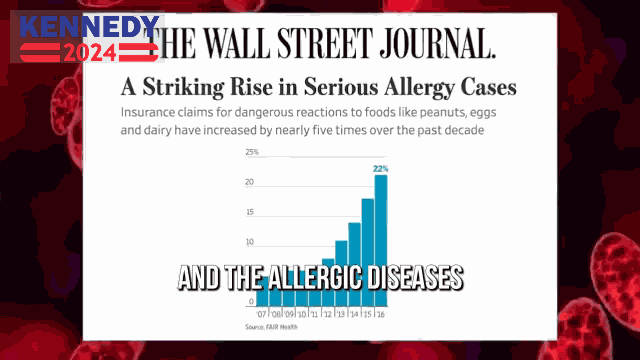
Title: The Surprising Decline in Peanut Allergies Among Children – A Game-Changer in Food Allergy Management? Introduction: In recent years, there has been an alarming increase in food allergies among children worldwide. One of the most common and potentially life-threatening is peanut allergy. However, a groundbreaking study reveals that since 2017, when experts officially reversed their longstanding recommendation for infants to avoid peanuts, there has been a significant decrease in peanut allergies among children. This development could be a game-changer in the management of food allergies and may pave the way for new strategies in allergy prevention. Historical Context: For decades, doctors have advised parents to keep their infants away from peanuts due to concerns about potential allergic reactions. However, research over time has shown that early exposure to peanut-containing foods can actually help prevent the development of a peanut allergy in high-risk children (those with severe eczema or egg allergy). In 2017, based on this evidence, experts from various organizations such as the National Institute of Allergy and Infectious Diseases (NIAID) and American Academy of Pediatrics changed their guidance. They now recommend introducing peanut-containing foods to infants between four and six months old, under parental supervision. Implications: The decline in peanut allergies among children since 2017 is a testament to the effectiveness of this new approach. It suggests that early introduction of peanuts can significantly reduce the risk of developing an allergy later in life. This finding has significant implications for both parents and healthcare professionals, as it provides clear guidance on how to manage food allergies from an early age. Moreover, it opens up opportunities for further research into other potential preventive measures against food allergies. Perspective: The decrease in peanut allergies among children is undoubtedly a positive development in the field of allergy management. It highlights the importance of evidence-based recommendations and underscores the need for continued research to better understand and address this growing public health concern. As we move forward, it will be crucial to monitor these trends closely and adapt our strategies accordingly. Ultimately, this study serves as a reminder that early intervention can make all the difference in preventing life-threatening allergies from developing. Conclusion: The decline in peanut allergies among children since 2017 is indeed encouraging news for parents, healthcare professionals, and researchers alike. It underscores the significance of evidence-based recommendations and highlights the potential benefits of early intervention in allergy prevention. As we continue to learn more about food allergies, it is essential that we remain vigilant and adapt our strategies accordingly to ensure the health and safety of all children.
Source: [Original Article](https://www.nytimes.com/2025/10/20/well/peanut-allergy-drop.html)
#peanut
Check out my AI projects on Hugging Face, join our community on Discord, and explore my services at GhostAI!
